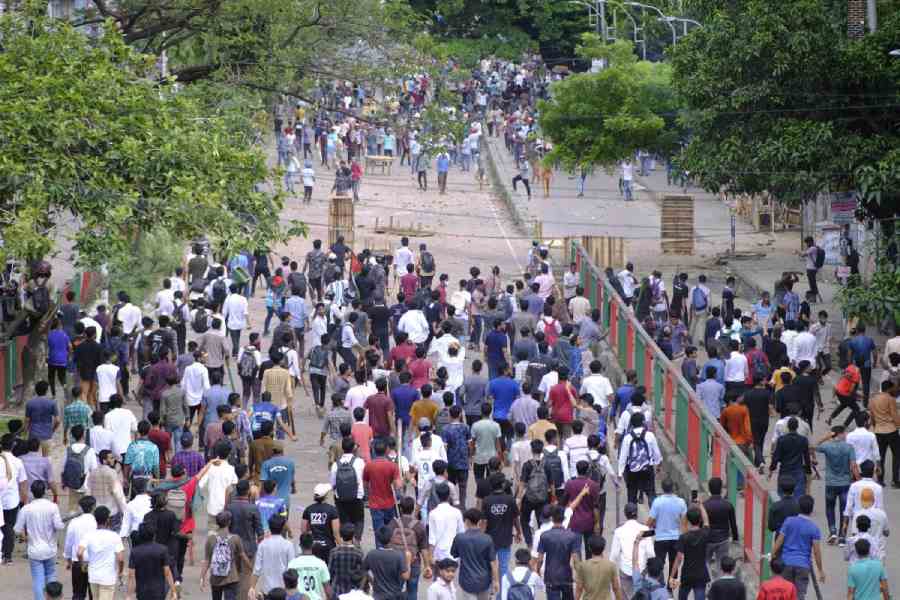Bangladesh deployed a paramilitary force Tuesday after at least five people were killed during violent demonstrations by thousands of university students, raising the specter of instability in a country familiar with protests.
For weeks, students across Bangladesh have been protesting quotas for government jobs that were recently reinstated after being abolished in 2018 following another countrywide student protest.
The protests were first started by students of the University of Dhaka, the nation’s preeminent institution, and have spread to other universities and cities and turned increasingly political, pitting the ruling party against the opposition.
Members of the Border Guard of Bangladesh, which is normally responsible for border security, were sent to five districts across the country to control the “law and order situation amid ongoing quota reform movement,” according to a statement provided by the force.
Since the protests began roughly two weeks ago, hundreds of demonstrators have been injured in clashes with police and with counterprotesters. Citing the safety of students, government officials announced late Tuesday that they would shut down most schools and colleges indefinitely. Facebook, the main social media platform that protesters used to organize and share news, was partially unavailable as of Tuesday night.
The demonstrations started in early July after a Dhaka court overturned a 2018 decision by the government of Prime Minister Sheikh Hasina to abolish the country’s job quota system, which had existed for decades.
The system reserved more than 50% of lucrative government jobs for quotaholders, including women and those with disabilities. They were initially devised as a way to reward those who fought for the country’s freedom from Pakistan in 1971, ensuring that their descendants would always be provided for. The latest ruling reinstated a 30% quota for those descendants.
Although the Bangladeshi economy has seen a steady rate of growth, and the private sector is a significant employer, government jobs are coveted because they are considered stable and come with a lot of benefits. The reinstated quota system — which the Supreme Court has paused temporarily because of the protests — could potentially force hundreds of thousands of new graduates to fight for a small number of open government jobs.
Student activists have argued that most of the government jobs should be given on merit.
The New York Times News Service











